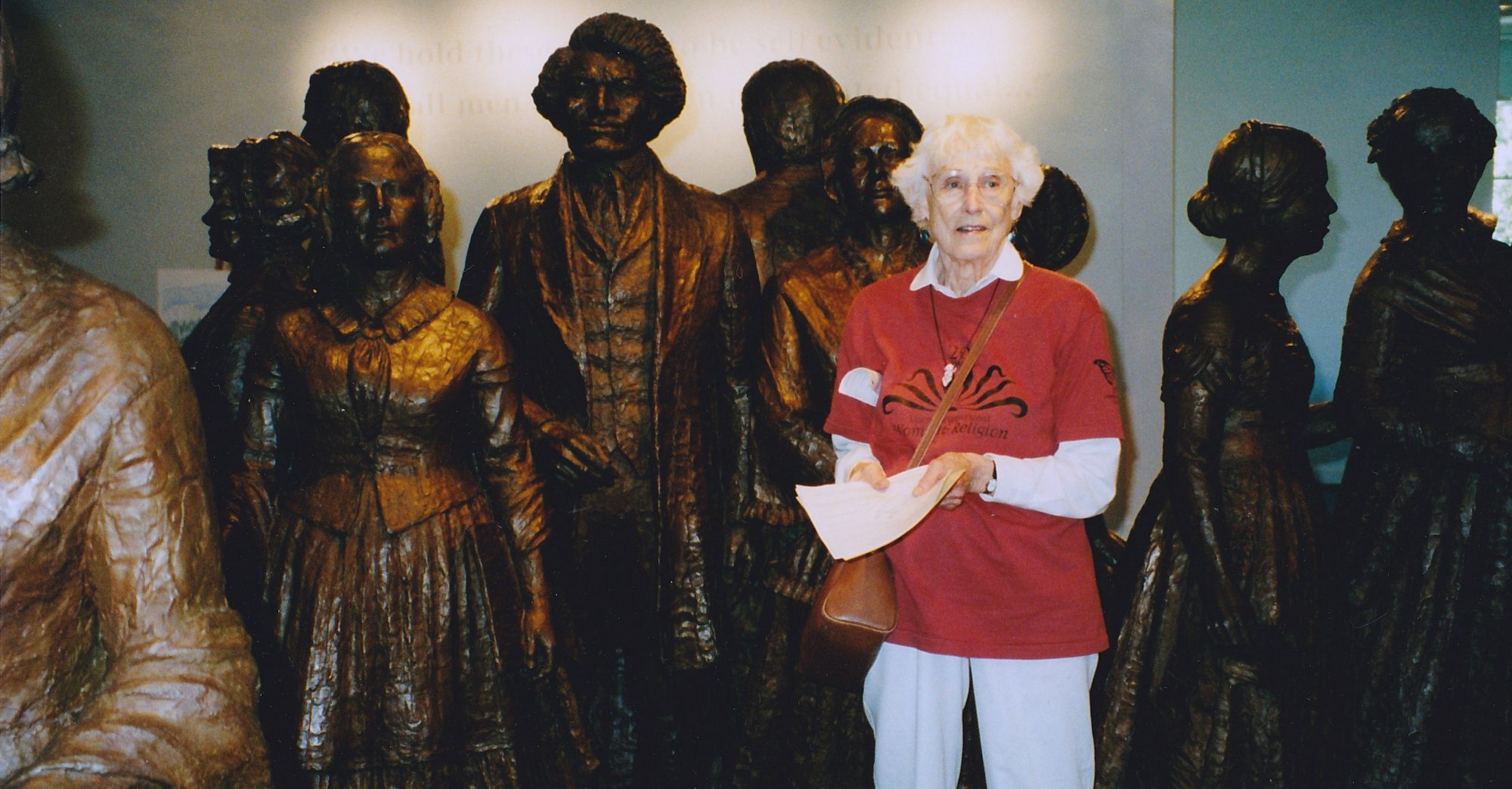Excerpts from Lucile’s remarks about the W&R Resolution and the revision of the UU Principles at General Assembly Plenary, June 23, 1987
The purpose of this resolution was to release the spiritualty of women from the misogyny so prevalent in the scriptures and prophetic statements of g1oba1 religions and especially of the Judeo-Christian heritage, ft was those very statements which we, as women ignorant of the implications of our former UUA Principles, had agreed to cherish and spread.
What is not generally acknowledged is the fact that implementation of the Women and Religion resolution was instrumental in opening the Unitarian Universalist Principles for review and revision,
Instead of hierarchy being the underlying assumption of our world view with domination and oppression assumed, the current Principles embrace a sense of connectedness and respect for the totality of life that women named at the workshop in Grailville.
A less visible but equally important result of a decade with the “Women and Religion” resolution is the coming to awareness that is taking place among us. Women’s spirituality is being released from the fetters of patriarchal consciousness.
There was a time before patriarchy–If you don’t recall, consult “Cakes for the Queen of Heaven” by Shirley Ranck. It is a much needed and valued seminar series to help us reclaim and encompass women’s long-buried religious story.
Hopefully there will be a time after patriarchy. If life is to continue on this planet, we must hasten that day’s coming, The UUA took its first step toward a life-giving future by adopting the new version of the Princip1es. How we define and value relationships within the interdependent web will determine whether we are in deed and in action free of the ages old custom of naming by the powerful.
This day and henceforth we reach for a feminist future!
Click Lucile’s Remarks at GA – 1987 to read the original typed version of Lucile’s entire remarks made before the Plenary! That was quite a day for the UU Women’s Movement with its unique perspective of addressing patriarchal nature of religious texts within a traditionally Judeo-Christian based organization.
